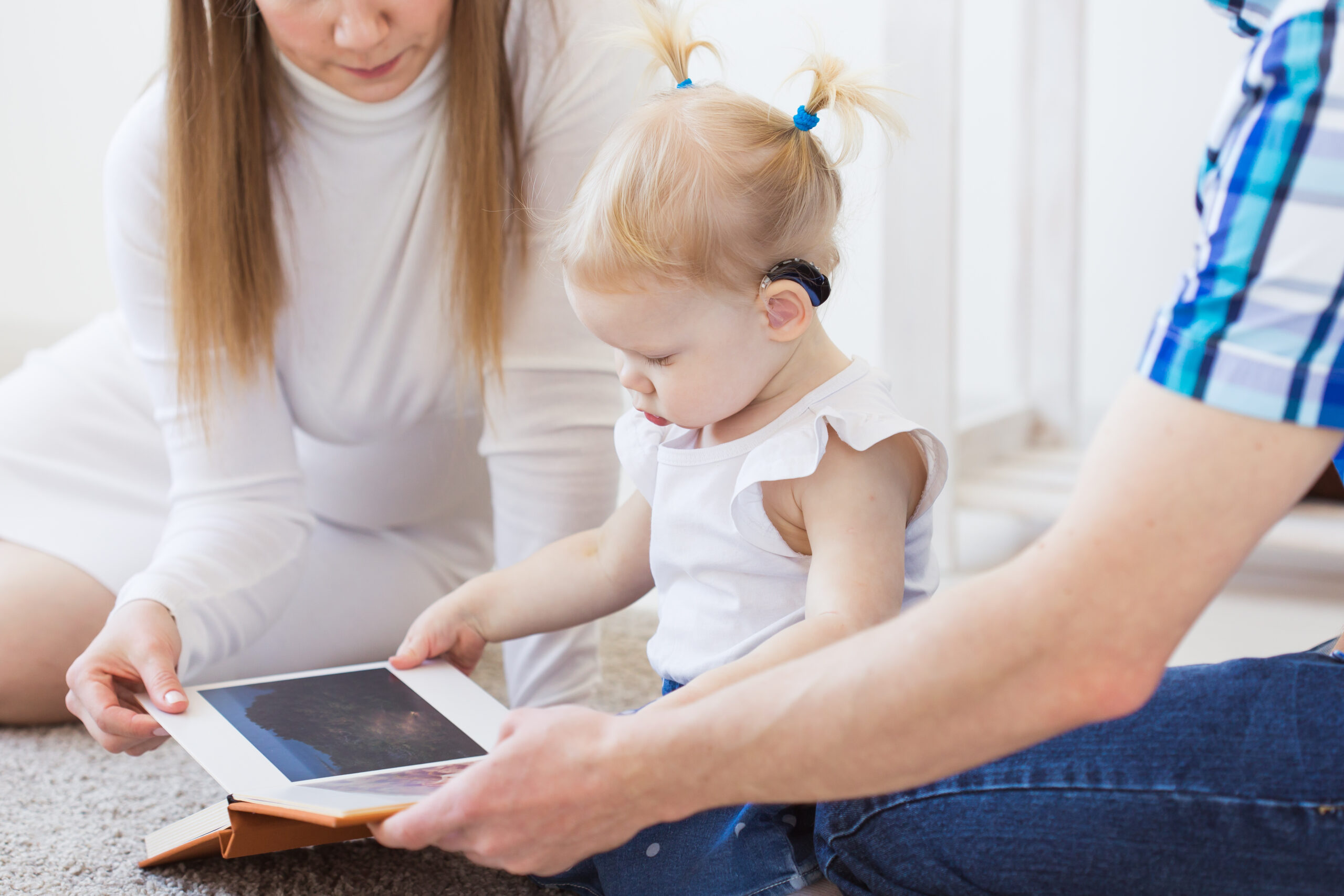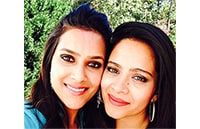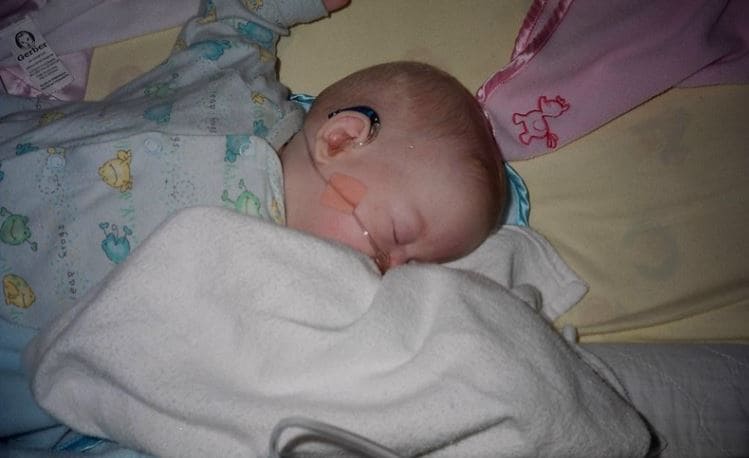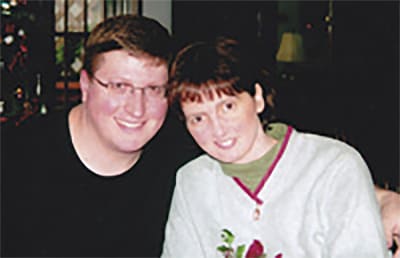Real Stories from People Living with Hearing Loss

CDC – Updated for November 2021
Author: CDC Staff
Suhana’s Story

Suhana Alam is a member of CDC’s Early Hearing Detection and Intervention (EHDI) team, serving as an epidemiologist, Division of Human Development and Disability (DHDD), National Center on Birth Defects and Developmental Disabilities (NCBDDD). Suhana identifies as a person who is hard of hearing since birth, and also has quite the story in terms of her own hearing.
The story starts with Suhana’s sister, Shahrine Khaled, who is older by 18 months. While their mother was pregnant with Suhana, their uncle came to town for a visit. During the visit, their uncle was quick to notice that Shahrine did not seem to be talking at an age appropriate level, respond when called upon, and would routinely turn up the volume on television and radio. Shahrine’s parents thought that her speech development and behavior were normal for a toddler, but thanks to the uncle expressing his concerns, the family soon took action. A hearing test confirmed that Shahrine was hard of hearing. When Suhana was born, she received a hearing screening and was discovered to be hard of hearing, as well.
Had it not been for the concerns raised by the children’s uncle, not only would Shahrine’s hearing loss have possibly gone on longer without being detected, but Suhana would most likely not have had a hearing screening at birth. Due to the early intervention and collaborative efforts from a team of physicians, speech therapists, counselors, and teachers, Suhana and Shahrine’s parents were equipped with the knowledge they needed to make sure both of their children could reach their full potential in life.
Suhana credits her parents for her own successes, saying that she couldn’t have made it as far as she has without their support and patience. And indeed she has made it far. In April 2015, Suhana achieved what she feels is her greatest accomplishment to date: being hired by the EHDI team as an epidemiologist with full time employee (FTE) status, after being an ORISE fellow since 2012.
Amy’s Story: A woman who has two children living with hearing loss

“I’m honored to share my family’s experience with hearing loss. I am the mother of twins, David and Elyssa, who were born extremely early. One of the consequences of their prematurity is that both my children have permanent hearing loss. “Emotionally, it was like being knocked back to right after their birth at 24 weeks. It was just so unfair!
They had already been through so much! And this was entirely different than anything they had been through up to this point—this was permanent, not something that they would eventually outgrow. “And while hearing loss is actually a disability I am familiar with, since my Dad is hard of hearing, I still could literally feel the track of my life shift beneath me after hearing that news.
I knew in that moment that wherever I thought my life was going before, I was now headed someplace entirely different. “We learned about the all-important ‘speech-language acquisition window’ and began to research cochlear implants. At the same time, I also began to learn sign language. Our goal was to give our children access to language in as many forms as possible. As much as possible, we wanted to put off forcing them into any path that would narrow their options. Don’t misunderstand, I do want my children to be able to hear and speak so that they are not isolated from the larger culture we live in.
I also felt though, that it was not entirely up to me… our children should have input into the decision of how they would communicate, too. “As our preemies continued to grow and develop, we started to notice that they were hearing more than their tests would have predicted. The hearing tests showed that David’s hearing had improved—in some ranges to a moderate hearing loss level—A miracle! Elyssa however, still tested as profoundly deaf.
“The time had finally come to get Elyssa a cochlear implant. It wasn’t easy to go through for any of us but we are so glad that we did! Elyssa has done fabulous with her “cochlear elephant” as she called it at first, quickly catching up to where she was with her hearing aids and then surpassing that point. She had a hearing test at one year post-activation. I cannot describe the feeling of joy and pride I felt, sitting behind my “deaf” daughter, watching her respond to sounds I could barely hear. For David, hearing loss is not his major issue anymore, although it is still there. We certainly are in a different place than I expected six years ago, but it is also most definitely a good place.”
Krista’s Story: A woman living with hearing loss

“When I was 17 years old, I lost all of my hearing in one ear. I learned that I had a genetic syndrome that caused tumors to grow on my hearing nerves. And I learned that someday I would become completely deaf in the other ear. I was devastated and frightened. I grew up with full hearing and didn’t know anyone who was deaf. I couldn’t imagine the world without sound. A few years later, a friend told me about a remarkable new technology called an alpha pager, a pager that could receive a message sent via a live operator. I was excited to think that someday this technology could help me.
“Soon my world got quieter, but I didn’t really notice because it happened so slowly. After much urging from my frustrated family, friends, and coworkers, I got my first hearing aid. I can remember turning my hearing aid on for the first time and immediately hearing a soft, low-pitched noise. My eyes scanned the room looking for the source. My audiologist smiled and said, ‘That’s the air conditioner.’ I went for my usual run that evening and was surprised to hear the gravel crunch beneath my feet and the croak of a bullfrog. I had forgotten that frogs make noise!
“But the sounds around me continued to soften. I began using captioning on TV only a year after a federal law was enacted requiring most new television sets to include a closed captioning feature. And I became unable to use the telephone only a few years after emailing became the norm. “I’m completely deaf now. In addition to closed captions and email, I rely on technologies such as text messaging, IM (instant messaging), and CART (communication access realtime translation).
Recent changes in technology, as well as other recent positive changes such as the passage of the Americans with Disabilities Act, have provided opportunities for people with disabilities that were not available 20 years ago. I sometimes think back to the excitement I felt when I learned that I might someday use an alpha pager, and I smile.”